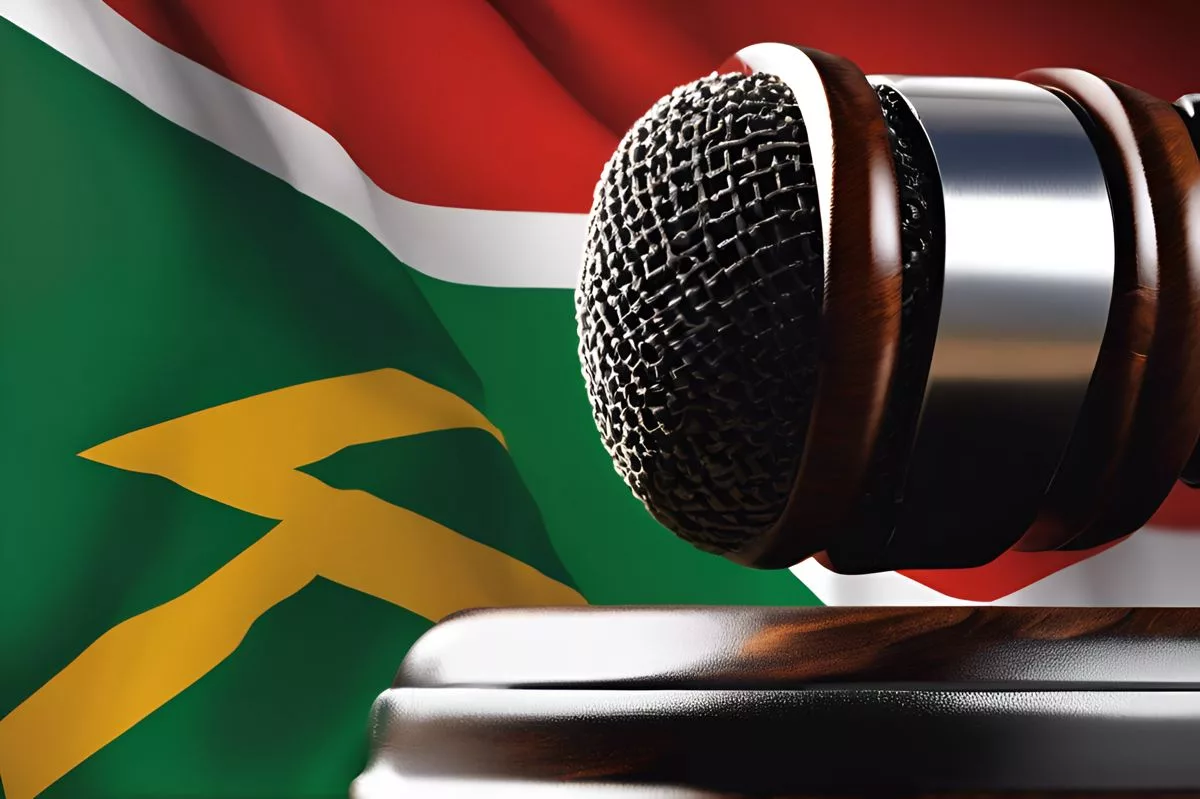Get ready for an exciting week in South African politics! The country is buzzing with a surge of parliamentary activities, including high-level meetings and discussions. The week kicks off with a Women Speakers’ Summit in Paris, followed by a multitude of local parliamentary activities and committee meetings covering a range of important topics. From government properties to nuclear safety, the agenda promises engaging and potentially transformative discussions, all with a shared dedication to democracy, transparency, and accountability. It’s a pivotal week for South Africa’s legislative and socio-political landscape.
South African Parliamentary Activities: A Pivotal Week Ahead
A substantial surge of parliamentary activities is expected to take place this week, signifying a crucial juncture in South Africa’s legislative and socio-political landscape. The agenda includes a multitude of high-level discussions, meetings, and summits, indicative of the vibrant heartbeat of the nation’s governance.
The Upcoming Wave of Legislative Events
A substantial surge of parliamentary activities is expected to take place this week, signifying a crucial juncture in South Africa’s legislative and socio-political landscape. The agenda includes a multitude of high-level discussions, meetings, and summits, indicative of the vibrant heartbeat of the nation’s governance.
The week’s events kick-off with South Africa’s National Assembly (NA) Speaker, Ms. Nosiviwe Mapisa-Nqakula, spearheading a delegation to the Women Speakers’ Summit in Paris, France. This Summit, orchestrated by the International Parliamentary Union, is an attempt to establish a worldwide platform for women holding significant decision-making roles within parliaments. The primary goal of this year’s Summit is to reiterate global support for women’s rights, using parliamentary diplomacy as a weapon to denounce sexual violence against women, notably in conflict scenarios.
Returning Home: Local Parliamentary Activities
Following the international event, the domestic political scene will be bustling with a multitude of parliamentary activities. An expected motion of condolences for the late Members of Parliament, Ms Alice Mthembu and Ms Violet Siwela, is scheduled to occur in the NA plenary on Tuesday. Their contributions to the country’s legislative fabric are unforgettable, their abrupt departure casting a somber tone over the week’s activities.
In a conscious effort to promote transparency and accountability, Ministers from the Social Services cluster will participate in a dialogue and inquiry session with the NA on Wednesday. This session will feature ministers responsible for various sectors such as Higher Education, Science and Innovation, Basic Education, Human Settlements, Water and Sanitation, Health, and Social Development. This process, an integral part of parliamentary proceedings, serves to ensure executive accountability and successful performance within the Cabinet.
NCOP Plenary and Committee Meetings
At the same time, the National Council of Provinces (NCOP) hybrid plenary will examine the report of the 2023 Provincial Week oversight program. This program, executed under the theme “Building viable Provincial and Municipal Infrastructure for Effective Delivery of Services to Communities,” was conducted in September 2023. The NCOP plenary will also deliberate the Expropriation Bill in the same session.
The week also includes 34 committee meetings, each with its unique agenda and participants. These sessions encompass a variety of discussions, from government properties and service delivery divisions to the consideration and adoption of the 2024 Budget report. Other important meetings involve interaction with the Office of the Auditor-General concerning the 2021-2022 Material Irregularities in local government and discussions on media platforms’ content regulation.
Legislation and International Collaboration
Moreover, sessions centered on the progress made in the issuance of permits and visas, the contemplation of the Electricity Regulation Amendment Bill, and the National Nuclear Regulator Amendment Bill are also on the agenda. Intriguingly, a meeting with the German Parliamentary Committee on Environment, Nature Conservation, Nuclear Safety, and Consumer Safety is planned within the Portfolio Committee on Environment, Forestry, and Fisheries.
As the week draws to a close, the NA will consider its draft program, committee reports, and bills before the House in its Programme Committee meeting. The NA will then wrap up its daily activities with two virtual mini-plenary sessions.
A Promise of Transformation and Progress
In summary, the planned parliamentary proceedings offer a week full of engaging, stimulating, and potentially transformative discussions. Although these activities range widely in focus, they are all unified by a shared dedication to the principles of democracy, transparency, and accountability. As the week progresses, the nation’s gaze will be fixed on Parliament, anticipating the outcomes that will determine South Africa’s future direction.
1. What is happening in South African politics this week?
There is a substantial surge of parliamentary activities taking place in South African politics this week, including high-level meetings, discussions, and committee meetings covering a range of important topics.
2. What is the Women Speakers’ Summit?
The Women Speakers’ Summit is an international event orchestrated by the International Parliamentary Union, which aims to establish a worldwide platform for women holding significant decision-making roles within parliaments. The primary goal of this year’s summit is to reiterate global support for women’s rights, using parliamentary diplomacy as a weapon to denounce sexual violence against women, notably in conflict scenarios.
3. What local parliamentary activities can we expect?
This week, we can expect a motion of condolences for the late Members of Parliament, Ms Alice Mthembu and Ms Violet Siwela, and a dialogue and inquiry session with Ministers from the Social Services cluster. These events serve to promote transparency and accountability and ensure executive accountability and successful performance within the Cabinet.
4. What are NCOP Plenary and Committee Meetings?
The National Council of Provinces (NCOP) hybrid plenary will examine the report of the 2023 Provincial Week oversight program, conducted in September 2023. In addition, 34 committee meetings will take place, each with its unique agenda and participants, encompassing a variety of discussions.
5. What legislation and international collaboration can we expect?
Sessions centered on the progress made in the issuance of permits and visas, the contemplation of the Electricity Regulation Amendment Bill and the National Nuclear Regulator Amendment Bill are planned. There will also be a meeting with the German Parliamentary Committee on Environment, Nature Conservation, Nuclear Safety, and Consumer Safety.
6. What is the purpose of these parliamentary proceedings?
These parliamentary proceedings offer a week full of engaging, stimulating, and potentially transformative discussions, all with a shared dedication to the principles of democracy, transparency, and accountability. The outcome of these proceedings will determine South Africa’s future direction.












